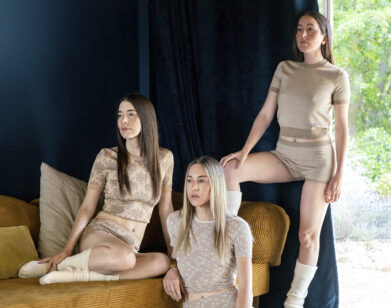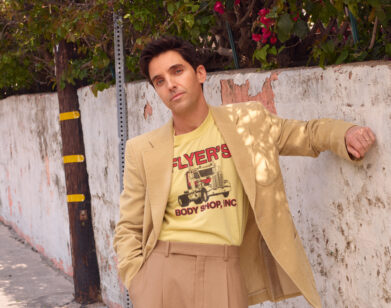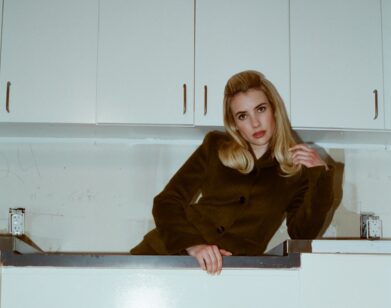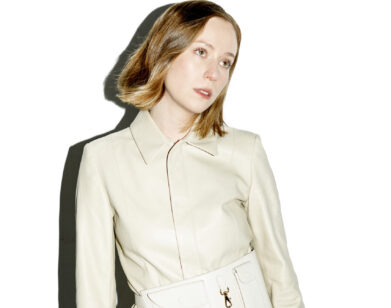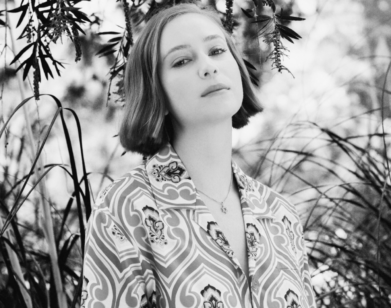IN CONVERSATION
Jeff Ward and Hannah Einbinder Stage a Hacks Reunion
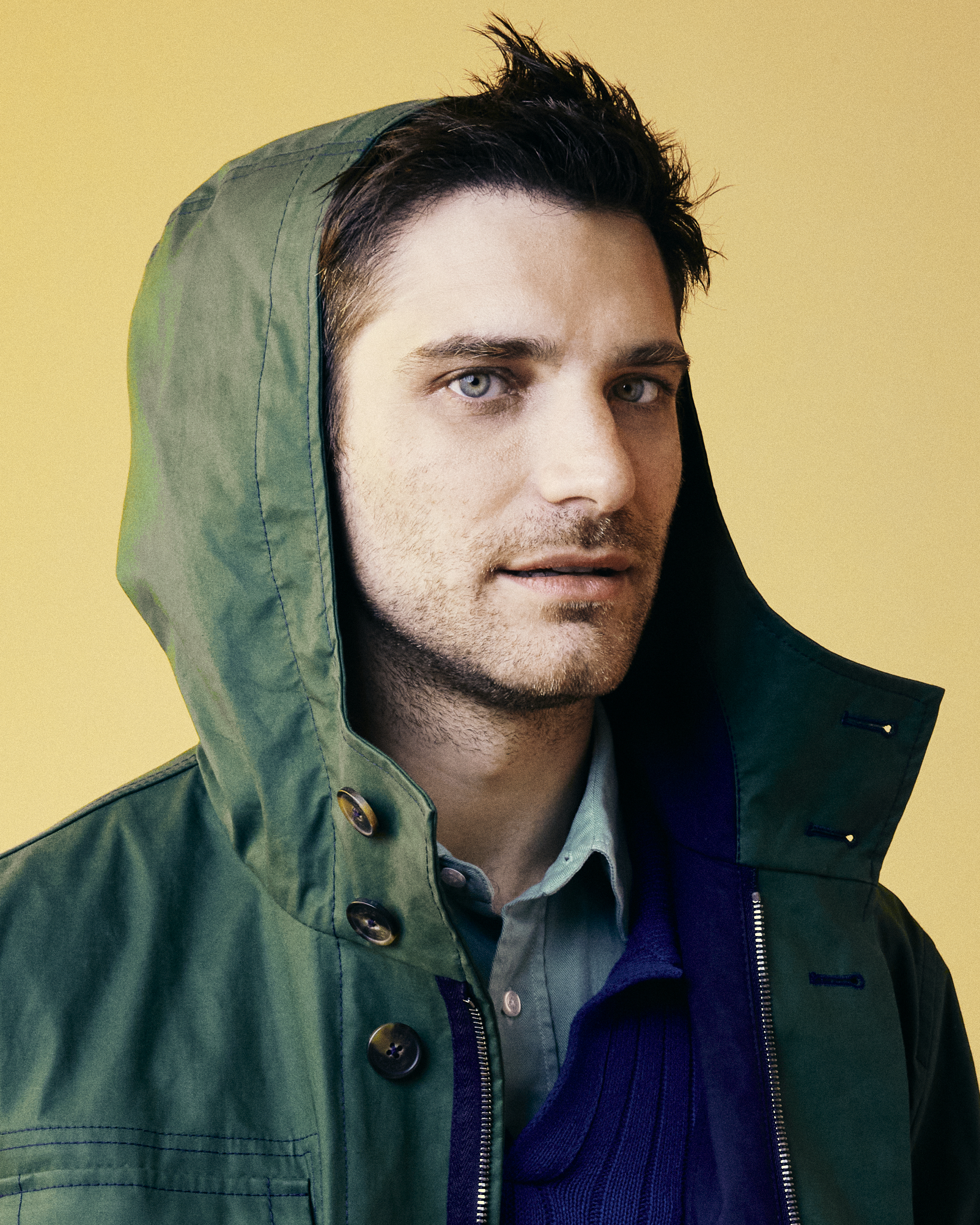
Photo by Stephanie Diani.
Many people will point to episode five as the moment where the HBO Max comedy Hacks went from “I think I’ll stick with this show” to “I would take a bullet for these characters.” You remember it. It’s the one where Ava meets the mysterious-but-charismatic George, who’s on a solo party weekend in Vegas (the red flag of all red flags), and the two proceed to have one of those only-in-Vegas nights that involves drugs, sex, and a morning after that gets unusually dark. A big part of the episode’s appeal is the chemistry between Hannah Einbinder and Jeff Ward, the actors who play Ava and George. Of course, Einbinder is now the Emmy-nominated star of one of the most beloved shows of the year, but Ward now has a show to call his own, too. In Brand New Cherry Flavor, a limited series that’s currently streaming on Netflix, Ward plays Roy Hardaway, a movie star who encounters the show’s protagonist Lisa Nova (played by Rosa Salazar) as she descends into a surreal and hellish L.A. underworld. To mark the show’s release, Ward reunited with Einbinder to discuss the crazy success of Hacks, the benefits to filming on location, and the dream of the ’90s. —BEN BARNA
———
JEFF WARD: Thank you so much for doing this, Hannah.
HANNAH EINBINDER: Oh my god. Are you kidding? I was so excited when you asked me.
WARD: I also have to tell you, just at the beginning, congratulations on your nomination. I’m very happy for you.
EINBINDER: Thank you, Jeff. I’m happy for us. It is our collaborative, collective thing, so I’m saying congratulations to you. We are both part of it and it’s a beautiful thing.
WARD: It did feel like that. Even though I was there for a relatively short time, it has felt a little bit like watching the home team win. You and Jean [Smart] are so great together and such lovely people in real life. Something that you and I were really conscious of when we were shooting was trying to depict a real sense of euphoria—drug euphoria in this instance, but also the euphoria of being with someone and not knowing where it’s going. That was such a phenomenal storytelling opportunity for me, because these two characters are experiencing that sensation for complete opposite reasons, and it culminates in such a unique way. It’s just such a great piece of writing. People have really been responding to it, which is cool.
EINBINDER: Absolutely. But we’re not here to talk about Hacks, we’re here to talk about Brand New Cherry Flavor. We’ve bonded in the past over Michael Caine’s book, Acting in Film. Is there anything from that book that you incorporate into your process when you get a character?
WARD: I remember talking to you about that book very early on. During theater school, I was really on this hardcore experimental theater kick. Then you get out of school, and you get out of training, and you’re hit by reality: You’re a young actor who nobody’s ever heard of or seen before. You’re like, “Wait, people don’t want to see my Lady Macbeth monologue?” You have to cut your teeth on the more naturalistic stuff. That book was the first thing I read out of college, and there’s stuff in it that I’m just now understanding. One line I often think of is, “Acting on stage is like acting with a scalpel, and acting on camera is like acting with a laser.”
EINBINDER: Ugh, love that.
WARD: There’s nothing I like more than watching you stan Michael Caine.
EINBINDER: [Laughs] He’s so deeply funny. He’s both aware and unaware of how funny he is in that book.
WARD: Exactly. Another line that I liked was, “Treat the camera like a lover off to the side, just watching you.” I still haven’t figured that one out, but I think about it all the time. That’s something I’ve noticed about the Michaels, the Leos and the Meryls. They have such a specific and confident relationship with the camera.
EINBINDER: Right.
WARD: Forgive me for continuing to say how great you are to work with, but we had such a fun time working together. Coming from theater, it was such a different experience on Hacks to be working literally on the Vegas strip. It was so wild to tell a story with that backdrop. There’s a lot of BS involved in acting, but that scene is really sad and honest. You’re reaching out for someone in a moment of fear and hardcore self-doubt. It’s so relatable.
EINBINDER: Absolutely. So, Cherry takes place in L.A. and, like you said about Hacks in Vegas, you’re shooting a ton in Los Angeles. You’re in a motel, you’re walking down the street, you’re in the hospital, and it feels so Los Angeles. Given your theater background, how much does physically being in the space that you’re depicting affect the work itself?
WARD: So much. Filming on location versus performing on a stage is a bit of a trade-off. I was in a spaceship on Shield, or on a Western ranch on Manson, we were in Vegas on Hacks, and I was driving a Porsche down Wilshire in Cherry. Filming at those locations feels amazing, but it’s also weird because there’s a camera there. It’s a different kind of obstacle. You have this thing that’s right in your personal space while you’re trying to give some kind of truth. We shot most of Cherry in Vancouver.
EINBINDER: [Laughs] Oh my god.
WARD: All of the inside, the motel, all that stuff was in Vancouver.
EINBINDER: Wow. Yeah, it takes so much work to suspend your disbelief in order to put yourself mentally in L.A. when you’re physically in Vancouver. By the time you get there, you’re really able to coast on all of the work that you’ve done to get in that state. It just becomes so easy and natural.
WARD: I agree. Our first scene together was in that restaurant bathroom, which was a narrow corridor built into a soundstage. I was amazed at how much we were able to get in the mindset of, “Vegas!”
EINBINDER: We started every day by walking in and screaming, “Vegas!”
WARD: Vegas, baby.
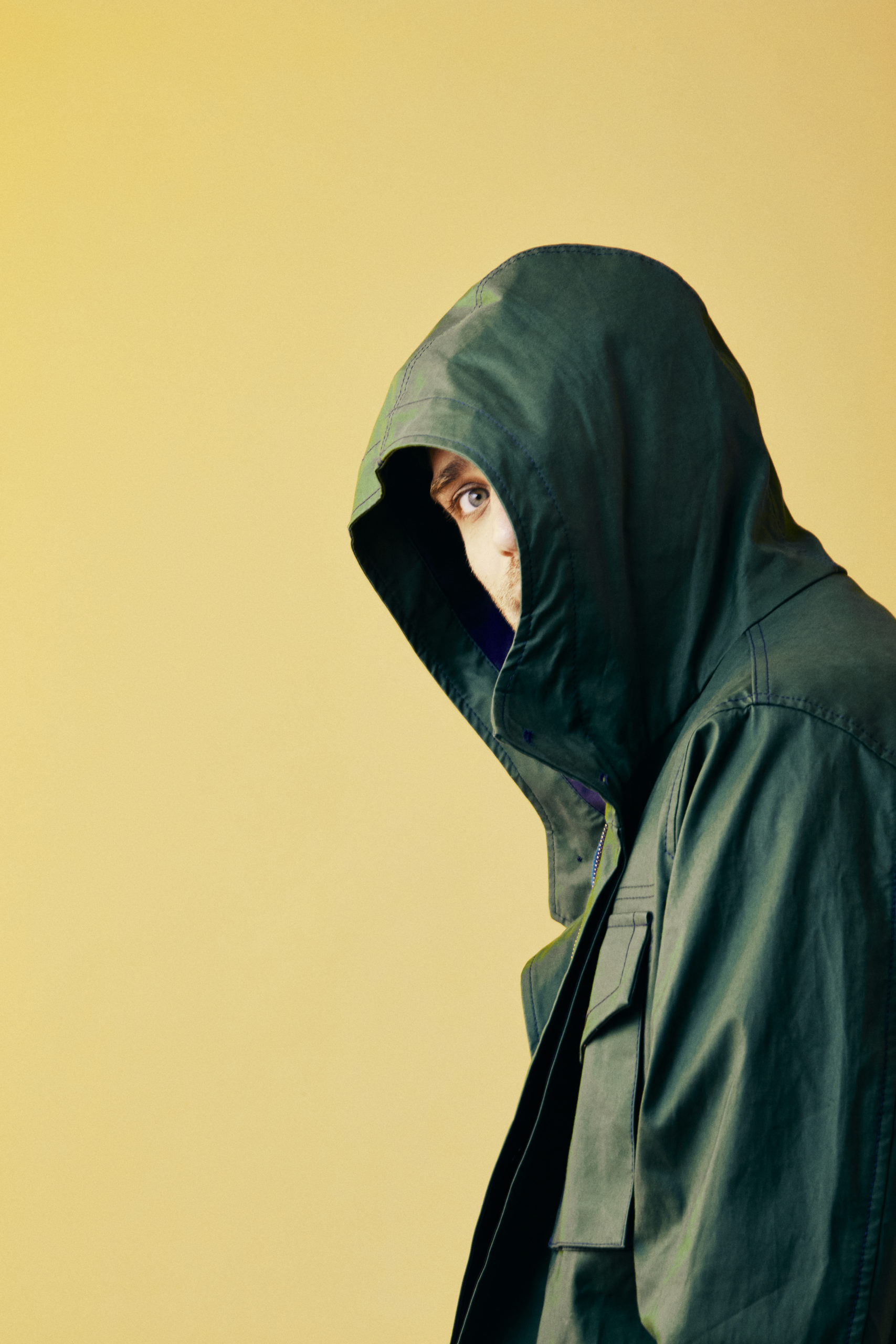
EINBINDER: Cherry is so viscerally ’90s. What were some of the references that you looked at for this show?
WARD: That’s such a fun question because in ’90 and ’91, I was a little kid just starting to fall in love with movies. From the ages of five to 15, it was that ’90s-2000s Hollywood that I fell in love with. Tarantino, Paul Thomas Anderson, the Coen brothers. There was this huge influx of money then—everyone was like, “We’ll give a few million dollars to this random kid who seems like they kind of know what they’re doing.” That’s how we got those weird, off-beat directors. I also loved watching those early ’90s actors grow, like young Leo, young Johnny Depp, young Brad Pitt, even River Phoenix. That’s why I wore rings in Cherry— I grew up thinking that stars wore rings on every finger.
EINBINDER: I wanted to ask you this question because I know how thorough you are. I watched you have so many in-depth conversations about motivation, thought process, and all of these things on Hacks. What are some of the conversations that you had about Roy, either with the director or the writers, that helped you get more into his head?
WARD: With Roy, Jake Schreier—who’s an excellent director and did episodes six and seven of Cherry—and I talked about how it’s easy to impose a deathwish onto a character. It’s like, “Okay, he’s got a death wish. He’s the bad boy.” There are some actors that can play the idea of that, and it works for them. For me, I realized that just being badass was not going to be enough. I felt like I could at least do something that was semi-interesting and thoughtful. We had this long conversation about the movies that he would have in his house. I was like, “I feel like he’d have Bullitt.” Jake responded, “In that case, he’s a little more mainstream.” So, I became really interested in playing him as this unicorn movie star that never hears “no,” but then later starts to find his darker side. That created the ultimate tragedy of the show. As much as Roy wants that darkness, I think he really wants to be healed.
EINBINDER: It’s why you do such a great job in both shows, because you are giving a little bit of Jeff. Like we’re all told, you have to find something good in whoever you’re playing, regardless of any of their qualities. You are the grounding force in a show full of magical realism. I mean, it must be a little mind fuck-y. What’s it like to go through the journey of understanding the world you’re a part of, but also having to remain on the outside for a great deal of it?
WARD: That was a really fun opportunity, getting to play a character that doesn’t have to necessarily be super-glued to reality as we understand it. I appreciate you saying that the character grounds the show, because he is trying to straddle that barrier between reality and full-blown surrealism. In some ways, Cherry is Hacks on drugs. You’re out with people you don’t really know, end up doing things you wouldn’t normally do, and find yourself in situations you wouldn’t normally be in.
EINBINDER: Yeah. It speaks to the setting of Hollywood, that this guy is accepting really unusual circumstances and rolling with it.
WARD: That’s so well-said. God forbid the apocalypse comes to Los Angeles, because we’re all going to be like, “Okay, we’ve seen this movie.”
EINBINDER: Oh, I know for a fact when the apocalypse comes, I’m going to be the first to go.
WARD: That’s not true.
EINBINDER: Jeff, I have no upper body strength. I have a dairy allergy. I’m out.
WARD: I’m with you on the dairy allergy. Maybe I’ll survive slightly longer, but I’ll be in that first wave, too.
EINBINDER: Do you think oat milk isn’t going to be the first thing to go? We’re fucked. Well, this has been such a pleasure.
WARD: Thank you so much for doing this. I really appreciate it because I do feel like we got to make something really cool this year. Cherry is out now, and Hacks season two is on the way.
EINBINDER: Maybe we’ll get a dream sequence and you’ll pop up.
WARD: Get that into Paul’s hands.
EINBINDER: I’ll let him know.
———
Styling by Brit Elkin.
Grooming by Rheanne White.

